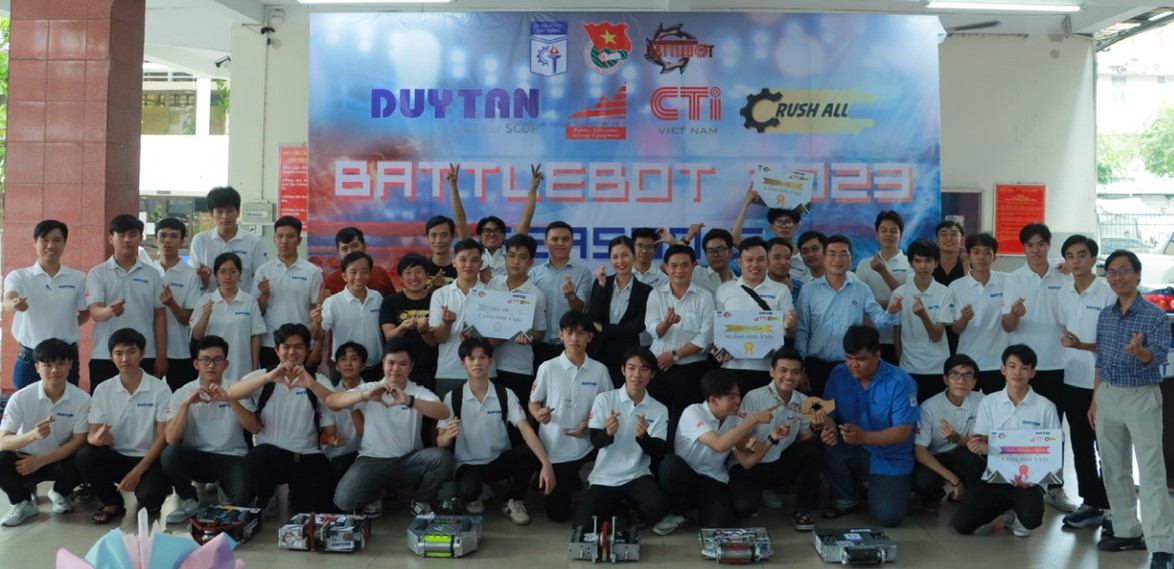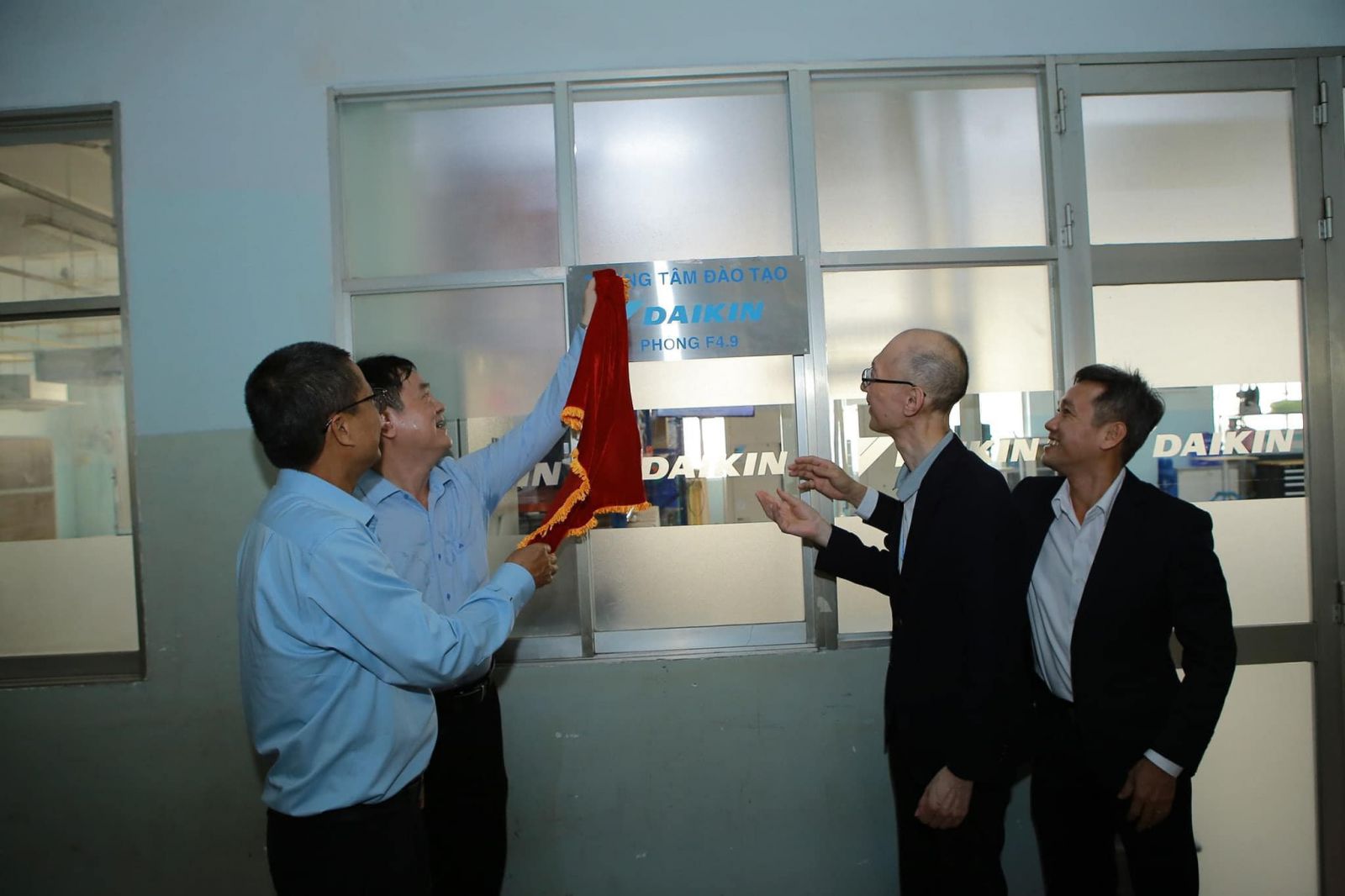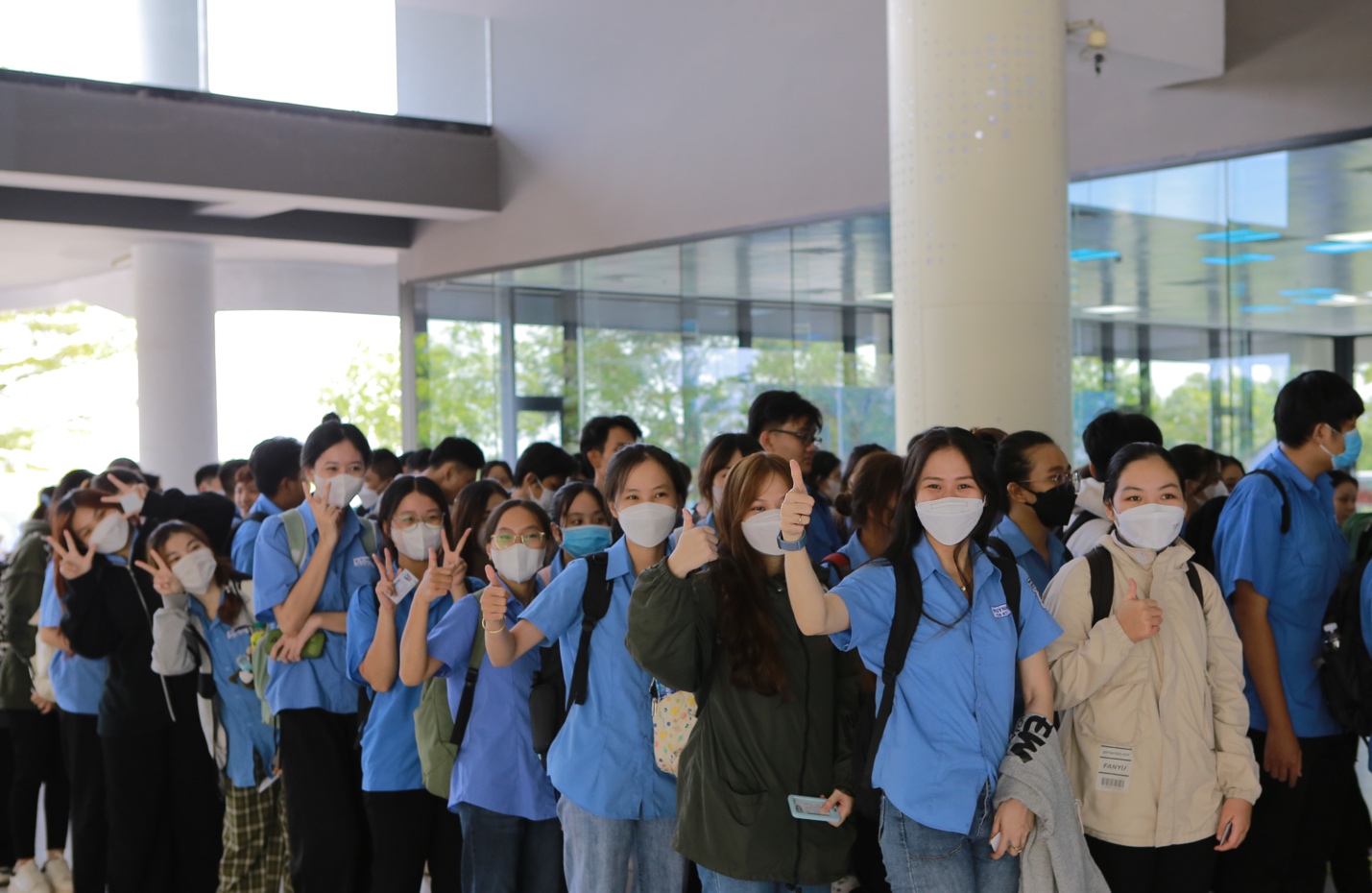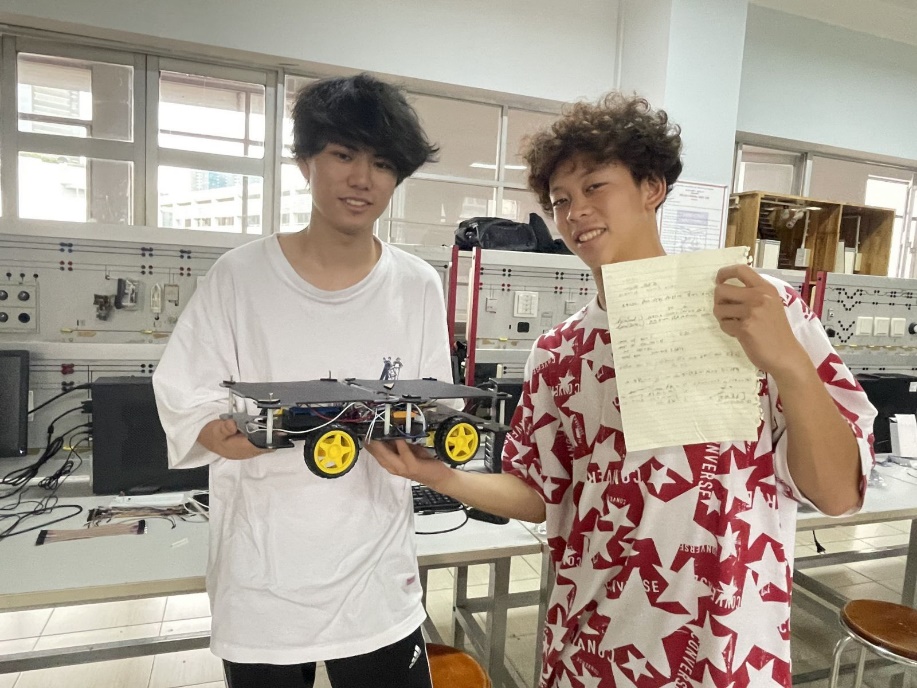Eleven Japanese students traveled to Vietnam to receive vocational training at Cao Thang Technical College in Ho Chi Minh City for one month.
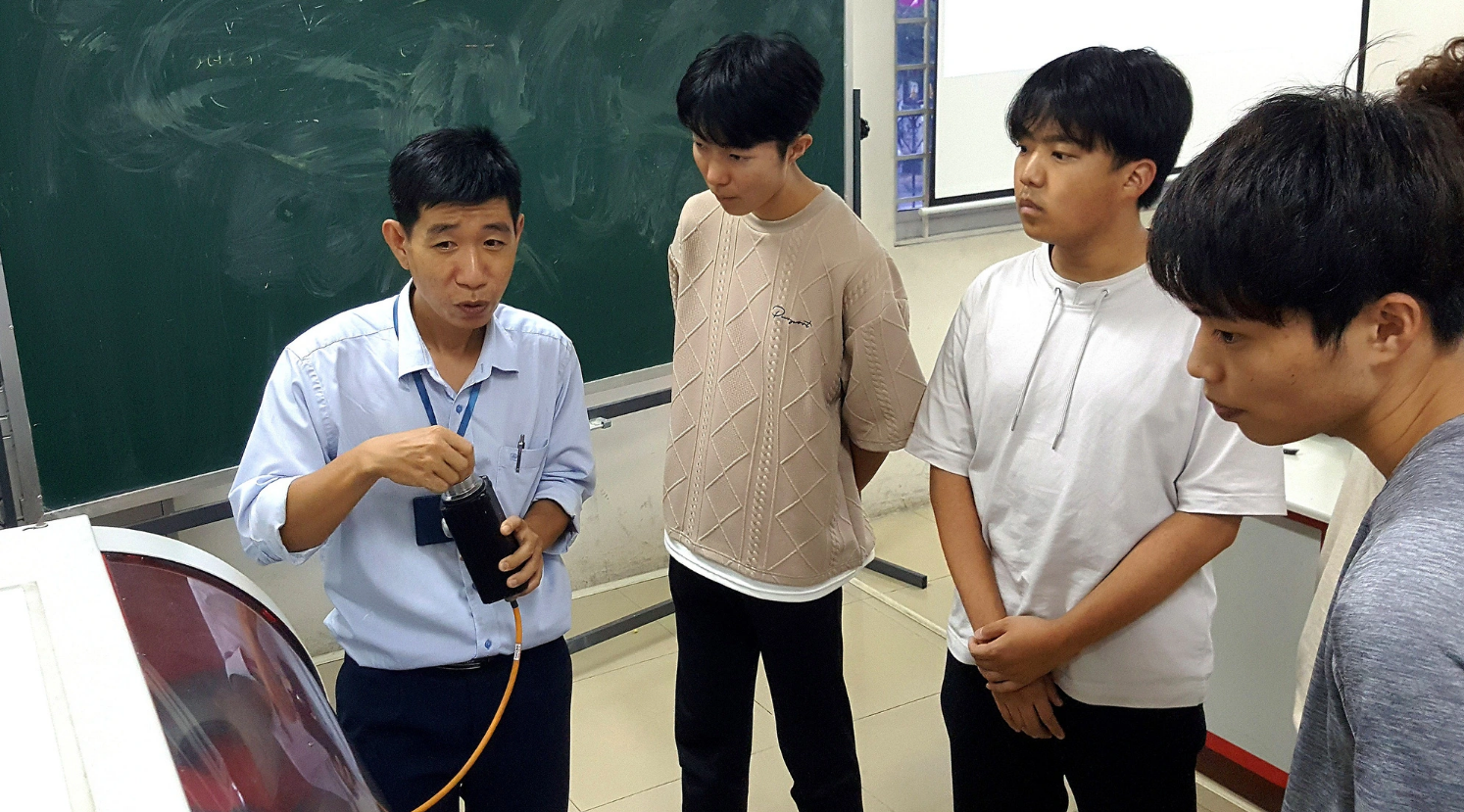
This is the first student exchange program jointly run by Cao Thang Technical College and Japan’s National Institute of Technology (KOSEN).
A training course by Nguyen Van Thong, deputy dean of the mechanical engineering faculty at Cao Thang Technical College, started to be attended by 11 young Japanese people in mid-September.
In his class, which includes both Vietnamese and Japanese students, Thong provides them with the fundamental principles of machines and practical skills. He uses English as the medium of instruction.
After some theoretical lessons, these students experience practice by operating machines and working on an industrial production line.
“I have spent a lot of time and enhanced efforts to prepare for the lessons in this vocational training course. All documents for the lessons were translated carefully,” Thong said.
“The Japanese students were eager to learn about broader knowledge. They raised several tough questions."
“We have taught our students how to use various machines, including ones manufactured by Japan.”
The training course of mechanical engineering was part of the Japanese students’ one-month apprenticeship program.
They had earlier spent many days studying electrical refrigeration, and electrical and electronic engineering.
Kusunoki Takeru, who majors in electronic engineering, said that in Japan, students will take some technical and technology subjects before entering their major.
Despite having already studied mechanical engineering and electrical refrigeration, Takeru got deeper knowledge about these majors in Vietnam than in Japan.
Apart from macro-knowledge, the Japanese students were also taught about household electrical refrigeration.
“I can now repair refrigerators at home,” Takeru said.
Nguyen Huu Quyen, deputy dean of the heat and cold engineering faculty at the college, said that many experts from Japan’s air conditioner manufacturer Daikin Industries Ltd. were invited to the training course to upskill the Vietnamese and Japanese students.
Experiencing Vietnamese education, culture
Dr. Le Dinh Kha, principal of Cao Thang Technical College, said that the exchange of the 11 Japanese students is part of the international cooperation between the college and KOSEN.
Multiple Japanese students had visited the college earlier and engaged in some competitions.
However, this is the first time that Japanese students have come to study for one month, Dr. Kha said.
Besides learning technical subjects, these students learn English and Vietnamese language lessons.
The program is aimed at giving the foreign students educational and cultural experiences in Vietnam.
Toyosaki Haruto, whose major is mechanical engineering, is impressed by the college’s Vietnamese lessons.
The Japanese students are taught how to spell Vietnamese words and form basic sentences.
Haruto can now use Vietnamese to buy things and bargain with vendors.
“I also know a set of behavioral etiquette of walking, greeting, and communication in Vietnam. I am really excited about cultural lessons in such a technical college,” said Haruto.
Meanwhile, Torigata Ichita is pleased by out-of-school activities. They have been taken to numerous famous historical relic sites in Ho Chi Minh City, including the historic Cu Chi Tunnels.
Through sightseeing tours, they could feel the value of peace, and the loss and sufferings of wars.
“Some teachers invited us to join cooking courses where various Vietnamese dishes were cooked,” Ichita said, adding that Vietnamese dishes are tasty.
“On the other hand, we held some sessions to introduce Japanese culture to Vietnamese friends,” said the Japanese student.
Apprenticeship in Japan
Takeru said that the majority of Japanese students like going to university. However, those who cherish technical majors prefer vocational facilities to universities.
The number of young Japanese people taking vocational training courses is on the decrease.
Among them, outstanding students will be selected for a special apprenticeship program, called KOSEN.
KOSEN is a five-year engineering education program for students aged 15 or older who do not continue their high school education after graduating from a middle school.
The program provides students with higher education in engineering.
Engineering courses offered through KOSEN include mechanical engineering, electrical and electronics engineering, chemistry and biochemistry, material science, and information technology, said Takeru.
Tieu Bac - Trong Nhan / Tuoi Tre News
 Vietnamese
Vietnamese English
English
